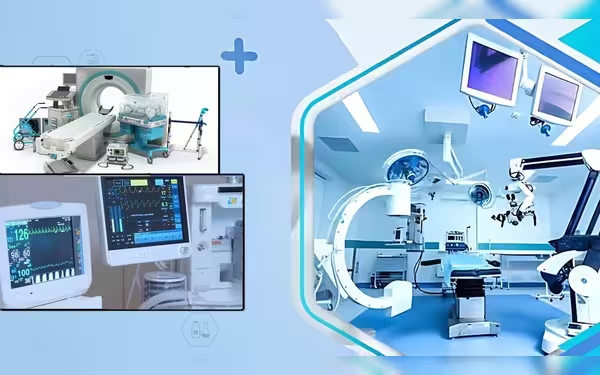Saturday, July 6, 2024 11:49 AM
DCGI mandates BIS standards for medical device testing
- Enhancing quality, safety, and performance of medical devices and IVDs
- Emphasizing adherence to BIS standards for testing infrastructure nationwide
- Focus on BIS testing standards to ensure product quality and safety
 Image Credits: menafn
Image Credits: menafnThe Drugs Controller General of India mandates adherence to BIS standards for testing medical devices and IVDs to enhance quality, safety, and performance, ensuring public health and healthcare system improvement.
The Drugs Controller General of India (DCGI) has mandated that medical device manufacturers and in-vitro diagnostic (IVD) testing laboratories adhere to the Bureau of Indian Standards (BIS) for product testing. This move is aimed at enhancing the quality, safety, and performance of medical devices and IVDs, while also bolstering the testing infrastructure nationwide.
Recent findings have revealed instances where certain medical devices were not undergoing testing as per established norms, raising concerns about product quality and potential health risks. In response, the DCGI has underscored the significance of following BIS standards in a communication to registered medical testing laboratories overseen by the Central Drugs Standard Control Organisation (CDSCO).
The directive emphasizes the necessity for medical devices to meet BIS standards for quality and performance during testing. In cases where BIS standards are unavailable, products can be assessed under the Medical Device Rules (MDR), 2017, authorized by the Ministry of Health and Family Welfare.
India heavily depends on imported medical devices, constituting 80% of the nation's supplies. Importing, manufacturing, or marketing these devices necessitates a valid license. The CDSCO, aligning with WHO guidelines, has established its own testing criteria, with the MDR acting as a compliance reference for manufacturers.
When BIS or MDR standards are not applicable, testing can be carried out based on criteria set by the International Organisation for Standardisation (ISO) and the International Electrotechnical Commission (IEC). Industry experts have lauded the focus on BIS testing standards for ensuring product quality and safety, standardizing industry protocols, and mitigating risks associated with device usage to safeguard public health and enhance India's healthcare system.
The implementation of stringent testing standards for medical devices and IVDs in India underscores the country's commitment to enhancing healthcare quality and safety. By adhering to internationally recognized standards and regulations, India aims to bolster its healthcare infrastructure and ensure the well-being of its citizens.













